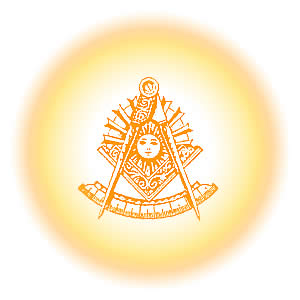Eclecticism against the ties of sciolism
by Athos A. Altomonte
© copyright by Esonet.it - Esonet.com
 Everybody knows the limits of sciolism and the advantages of eclecticism in the field of research. Without involving initiatory and spiritual eclecticism, the intellectual one is a philosophical method that consists of welcoming and reconciling theories of different systems that express the same topic, consciously structuring them with the purpose of widening the idea at the basis of the different theories or interpretations.
Everybody knows the limits of sciolism and the advantages of eclecticism in the field of research. Without involving initiatory and spiritual eclecticism, the intellectual one is a philosophical method that consists of welcoming and reconciling theories of different systems that express the same topic, consciously structuring them with the purpose of widening the idea at the basis of the different theories or interpretations.
This has been done by connecting the Ars Regia, symbol of mental majesty, with its oriental analog, which is the Raja Yoga philosophy; in the conviction that the proposal of alternatives to interpretative sciolism about an idea is not only desirable, but it is the only form of creative research.
Research should never be static. Its conclusions will never be satisfactory if the only source of enquiry is monothematic sciolism, which is part of a closed system and therefore limited and limiting.
On the contrary, as far as I know the researcher never precludes himself any analogy and correlation in order to reach conclusions that, although relative, always have the advantage of suggesting new and complex intellectual combinations that enrich his knowledge. Therefore variety means advancement and not stagnation.
In other words the eclectic man studies and compares the significant elements of different thoughts, which he doesn't underestimate because a universal conscience isn't just happy with exclusive schemes; on the contrary, it avoids the stagnation of those who entrust only one cultural language and specializes in one direction.
For the same reason, the person who trusts a unique esoteric vision, for example hermetic, alchemic or Masonic, risks confining himself to a closed circle. This causes a limitation that clashes with the intellectual opening symbolized in the Ars Regia (the degrees of the Compass surmounted by a crown), which is the introduction to Ars Pontificia.
Therefore to entrust the uniqueness of a system means to gamble all the possibilities of our research, viz. ourselves, on one card only. This is certainly not a clever choice; its disadvantages have been highlighted by Karl R. Popper, who dealt with the unreliability of closed systems.*
__________
* Closed Systems – ‘Closed systems are made of totally abstract (abstruse) theses, ideological statements or religious dogmas that are confirmed only inside their structures and through their instruments, therefore they can't be denied.
These are said to be self-immunizing, because they are based on reasonable modules, supported without questioning any part of them, immunizing them from any kind of denial deriving from a dialectic debate or an intellectual confrontation.
Furthermore, we consider as a closed system all ideological theses or beliefs that claim to be all-inclusive propositions, viz. those speculative systems where an explanation of and for everything is found.'
__________
This praxis is universally shared but it is not loved by the ‘followers' of specific esotericisms. This doesn't devalue the principle, which is essential in esotericism like in any other field of culture, science and art, and which no intellectual would ever reduce to be the cage of his own thoughts through a specific sciolism.
But there is more than that: the initiate doesn't go anywhere. He doesn't go north, south, east or west. He doesn't go anywhere but stays still in his center of conscience until he becomes himself the center of the four cardinal points.
Therefore the initiate doesn't advance; he goes up to observe with detachment all that surrounds him.